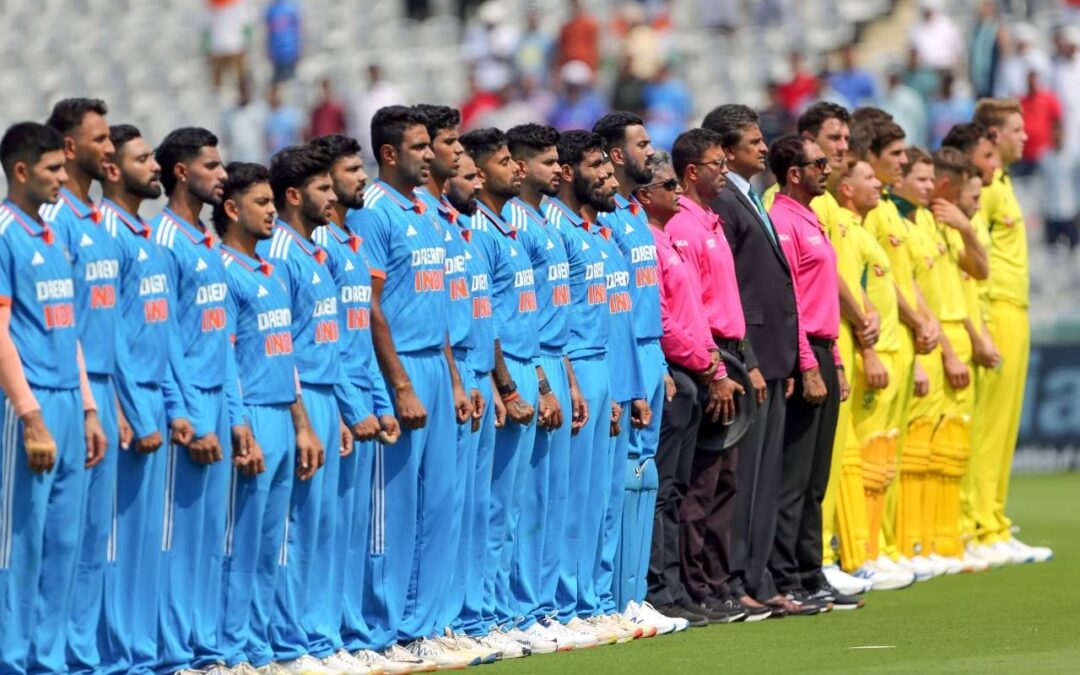According to reports, the ICC is planning to reintroduce the ODI Super League. At the same time, associate member nations have suggested new changes to how teams qualify for the ICC Men’s T20 World Cup. These matters were discussed during ICC meetings which were held in early November 2025.
ODI Super League Set for a Comeback
The ICC Men’s ODI Super League was first introduced in 2020 to make the 50-over format more meaningful by connecting regular ODI series to World Cup qualification. In the first edition a total of 13 teams, the 12 full members and Netherlands were part of it. However, the league was stopped after the 2023 World Cup cycle because of scheduling problems and mixed responses from member boards.
Now, the ICC is considering reviving the Super League as part of its long-term plans for the next cycle of international cricket. The move is aimed at adding relevance to bilateral ODIs and ensuring a structured pathway to World Cup qualification.
The revival is being considered ahead of the 2027-2031 cycle, with discussions suggesting that the format could return before the 2028 ICC ODI calendar begins. While details such as the number of participating teams and qualification criteria are yet to be finalised, the core objective is to rebuild global interest in 50-over cricket.
The decision comes amid growing concerns that the ODI format is losing its appeal compared to T20s. A points-based league system could once again give meaning to bilateral series and help smaller teams play more competitive cricket.
Associate Nations Push for Fairer T20 World Cup Qualification
While the ICC focuses on the ODI Super League, associate member nations have made their own proposal, calling for a change in the T20 World Cup qualification format.
At present, teams qualify for the T20 World Cup through regional tournaments held in Asia, Europe, Africa, the Americas, and East Asia-Pacific, while the top-ranked full member teams qualify automatically. However, associate nations feel that this system reduces their chances of qualifying, even if they perform well.
To make the process more inclusive, they have proposed introducing a global qualifier tournament, similar to Olympic-style qualification, that would include both full members who fail to qualify automatically and top-performing associate nations.
Also read: The Ashes 2025-26: Big Injury Updates for Australia – Hazlewood Cleared, Abbott Ruled Out!
This change, they argue, would
- Provide fair competition for all teams.
- Offer associate nations more exposure and revenue opportunities.
- Ensure that every World Cup spot is earned through merit rather than ranking alone.
If it gets approved, this system could come into effect for the 2028 Men’s T20 World Cup cycle, creating a more balanced qualification pathway and it will give emerging cricketing nations a better chance to compete at the top level.
What These Changes Mean for Global Cricket
Both developments highlight the ICC’s efforts to strike a balance between maintaining traditional formats and promoting global inclusivity. The return of the ODI Super League would restore meaning to bilateral series, and the new T20 qualification format could open doors for emerging nations.
However, challenges remain. The ICC will need to manage an already packed calendar, ensure fair scheduling, and provide logistical and financial support to associate nations if these reforms are to succeed.
Conclusion
The ICC’s plans to revive the ODI Super League and the associate nations’ proposal to change T20 World Cup qualification reflect a broader vision, to make international cricket more competitive, fair, and global. If implemented properly, these reforms could breathe new life into the 50-over format and open the door for more nations to shine on the world stage.
Written by Kinjal Walantra

